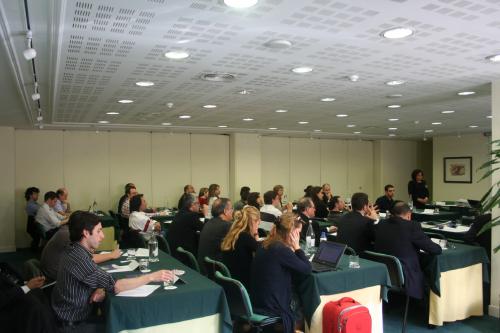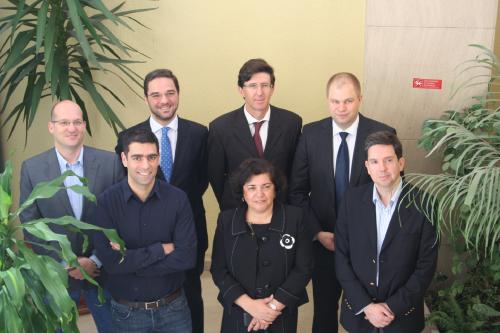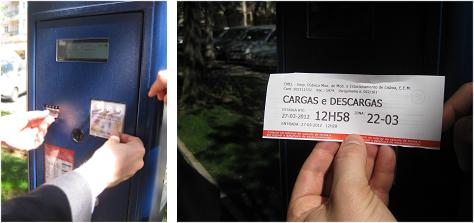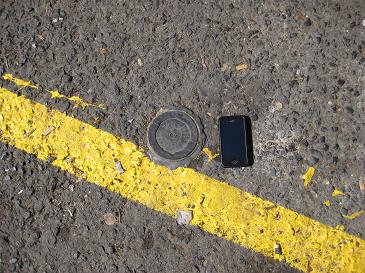
Project News
STRAIGHTSOL Newsletter - Issue 6 available (pdf, 688Kb)
[More]
See our animations
[More]
New deliverables available
[More]
Summary results booklet available
[More]
STRAIGHTSOL evaluation framework resources available
[More]
Open ENLoCC event videos available
[More]
STRAIGHTSOL Newsletter - Issue 5 available (pdf, 193Kb)
[More]
Kuehne-Nagel's video: Rail tracking and warehouse management (6:50 mins)
[More]
Demonstration poster presentations available to download
[More]
Tuesday 27th March 2012 - Lisbon
STRAIGHTSOL Demonstration Workshop
of freight loading/unloading monitoring and control
Presentations available to access:
- Introduction to EMEL's activities - Prof. Tiago Farias (EMEL)
- Introduction to Straightsol project - Jardar Andersen (TOI)
- Mobility and freight issues in Lisbon - Paulo Simões (Municipality of Lisbon)
- Introduction to the demonstration - Óscar Rodrigues (EMEL)
- Preliminary findings of data analysis - Nuno Bonneville (EMEL)
- First results from field surveys - Luis Filipe (IST)
Workshop report
Introduction
The aim of this STRAIGHTSOL workshop was to present the Lisbon demonstration to those interested in urban logistics activities, including stakeholders, students, professionals and citizens, with a special focus on the citizens whose activities are affected by the EMEL demo, which has been implemented in the city.
The speakers included Prof Rosário Macário, from IST, who welcomed participants and gave a brief outline of what they should expect from the workshop. Then Prof. Tiago Farias, a member of the board of directors of EMEL, gave a very vivid presentation of the company and its main activities (controlling parking, loading and unloading activities and access to the historical neighbourhoods in Lisbon); he also gave an outlook of the main issues regarding these activities, as well as the ongoing and forthcoming projects regarding mobility in which the company is involved.
Mr. Jardar Andersen from TOI presented the STRAIGHTSOL project to the audience, followed by Mr. Paulo Simões, from the Municipality of Lisbon, who presented a comprehensive framework of mobility and freight deliveries inside the city of Lisbon, including the latest developments, main problems and restrictions.
After this, Mr. Óscar Rodrigues from EMEL presented the EMEL demo, which in short comprises the simultaneous test of two different technologies - adapted parking meters and ground vehicle detectors - to control freight activities in one street of the city (Guerra Junqueiro Avenue). He presented the objectives for implementing the demo, as well as the concepts and technological aspects behind both solutions being tested.

Mr. Nuno Bonneville, also from EMEL, presented the preliminary findings of the data analysis that has been carried out on the data automatically gathered by the two technologies, and Mr. Luis N. Filipe, from IST, presented the first results of the field surveys that were carried out by the IST team on the demo site.
Finally, Mr. Carlos Moura Carvalho, the owner of 'Mercearia Criativa' - a modern grocery shop located in the avenue where the demo is being implemented - gave a very interesting presentation about a freight receiver's perspective of freight problems in the city of Lisbon.
These presentations were followed by a visit to EMEL's demo site on Guerra Junqueiro Avenue, where they could see both solutions, on site, and receive full explanations of their functioning. They were even able to see the solutions in action as a small demonstration was staged to show how everything works.
The audience of the workshop totalled 38 people from stakeholder groups, consultancy firms and academia.

Speakers (back row, from left to right): Óscar Rodrigues, Nuno Bonneville, Tiago Farias, Jardar Andersen; (front row): Luis Filipe, Rosário Macário, Paulo Simões; (not in picture): Carlos Moura Carvalho
Background
The City of Lisbon has long been suffering from growing problems with unregulated loading/unloading activities, increasing road congestion and often causing blockage of roads (when trucks stop on narrow streets for quick loading/unloading activities), and a generalisation of illegal parking (e.g. trucks and vans parked on pavements, double-parked, or parked on places for private cars, and private cars parked on places for freight operations). Furthermore there is no national legislation to regulate loading/unloading activities, nor an efficient enforcement to regulate the traffic and parking, which also hinders a good performance of freight deliveries. As a consequence, significant conflicts exist between urban freight activities, pedestrian circulation, private car use and public transport operations.
In this context, public authorities felt the need to find a new solution that helps to mitigate or to solve the problems identified above. EMEL, Lisbon's Municipal Company for Mobility and Parking, has been responsible for this, and it's participation in the STRAIGHTSOL project brought about the opportunity to test new solutions and help to choose the best one. More specifically, EMEL's goals for implementing the demo are:
- To test and identify suitable technologies for controlling and monitoring cargo activities (loading/unloading) in the urban context;
- To provide evidence and the grounds for developing the Municipal Regulation for loading and unloading operations;
- To apply the chosen technology to the rest of the city.
Demonstrator summary
The EMEL demonstration tests two technological based schemes:
- Adapted Parking Meters that issue special tickets for 30 minutes of free parking for unloading/loading operations. These parking meters are activated when the driver exposes a contactless card that was previously given to shopkeepers and transport operators. The driver must then put the ticket under the windshield to be verified by the parking officers. If the 30 minute period expires, the parking officer may notify the driver (as there's currently no regulation for freight operations, the driver cannot be fined);
- Loop Vehicle Detection sensors installed on the ground which detect the presence of a vehicle and send a message to EMEL's control centre, which then gives the operator 30 minutes to finish the operation and leave the parking place. After the 30 minutes have passed, the control centre sends a message to the PDA of the closest parking officer, who will check on site. If an infraction is verified the parking officer may notify the driver.


Vehicle detection sensor (about the size of a mobile phone)
The two technological schemes are applied simultaneously on the same street with each one on both sides of the street.
In order to assess the solutions being tested, the following actions will be carried out in parallel with the demonstration:
- Identification of the cost structure and benefits of both technological schemes;
- Evaluation of the current levels of satisfaction (for shoppers and transport operators);
- Collection of information for assessing and monitoring of the demo.
The demo started on Dec 5th 2011 and is due to last until the end of April.
IST, the academic partner responsible for assessing EMEL's demo, has conducted field observations to gather data that enables the assessment. These observations were carried out on two weeks before the start of the demo and two weeks during the demo. Observations were made in the whole period covered by the regulation (9.00-19.00 on weekdays, 9.00-13.00 on Saturdays), and in the whole avenue. The data gathered is still being processed but has already enabled some interesting conclusions to be drawn.
The number of deliveries remains fairly constant throughout the working week, with a sharp decrease on Saturday, as expected. On the other hand, illegal parking on the loading and unloading bays reaches its peak on Saturdays, when the bays are totally occupied by vehicles of residents and shoppers in the area. During the day, there is a peak of deliveries in the morning (at around 11 o'clock) and a more spread peak in the afternoon, from 3 to 4pm. Illegal parking remains almost constant throughout the day, with a slight increase towards the end of the afternoon - perhaps caused by residents returning home or by parents picking up their children, as there is a language school and a music school on the street.
Most of the deliveries take 5 to 10 minutes to complete but there are also a lot of delivery vehicles parked for more than 30 minutes - it was not possible to identify the reason for this yet.
Prior to the implementation of the demo, EMEL held meetings with the main stakeholders (logistics service providers (LSPs) and shopkeepers) to make them familiar with the demo and get their cooperation in the use of the smartcard solution. All stakeholders contacted were willing to cooperate.
Throughout the running of the demo, LSPs seemed happier to use the sensors than the parking meters, because the former do not require any action from the operator, whereas the use of the parking meter solution requires the use of the contactless card.
During the demo some sensors were vandalised and stopped working. There were also some issues with the accuracy of the data transmitted by the sensors to the EMEL control centre, for which no reason has been identified yet.
Another issue affecting the results might be the presence of illegal 'parking facilitators', who can influence drivers' behaviour while parking - sometimes telling them to park in places reserved for loading and unloading activities.
Future plans/ Potential new research/ Exploitation potential
The demo is due to run until the end of April 2012. After the demo is completed and the assessment report finished, EMEL will use its conclusions to choose the technology to control loading and unloading activities that will be implemented in the whole city of Lisbon.
In parallel, a new Municipal Regulation for loading and unloading operations will be developed, taking into account the findings of the demo.

Events
29/08/2014
Project Final Review meeting, Brussels
12/06/2014
Smart Urban Freight Conference hosted by NewRail, Newcastle University, including contributions from Straightsol project
[Conference webpage]
13/06/2014
Evaluation Framework Training Sessions, Newcastle University
[More]
02/04/2014
Open ENLoCC event, Brussels, including presentation of Colruyt and Delhaize night-time deliveries demonstration
[More]
24/09/2013
Demonstration Results Workshop/Exhibition in Amsterdam
[More]
02/07/2013
TNT Express demonstration workshop in Brussels
[More]
23/04/2013
Oxfam demonstration workshop in Batley, near Leeds, UK
[More]
07/03/2013
DHL Supply Chain demonstration workshop in L'Hospitalet de Llobregat/Barcelona, Spain
[More]
31/10/2012
Oslo: Demonstration workshop
Smart Urban Transport - Standardising information in retail supply chain management and last-mile distribution
[More]
13/09/2012
Thessaloniki: Demonstration workshop
"Intelligent" systems for the interconnection of urban-interurban freight transport
[More]
03/07/2012
Brussels: STRAIGHTSOL project workshop on Smart Urban Freight Solutions
(in collaboration with the Smartfusion partnership)
[More]